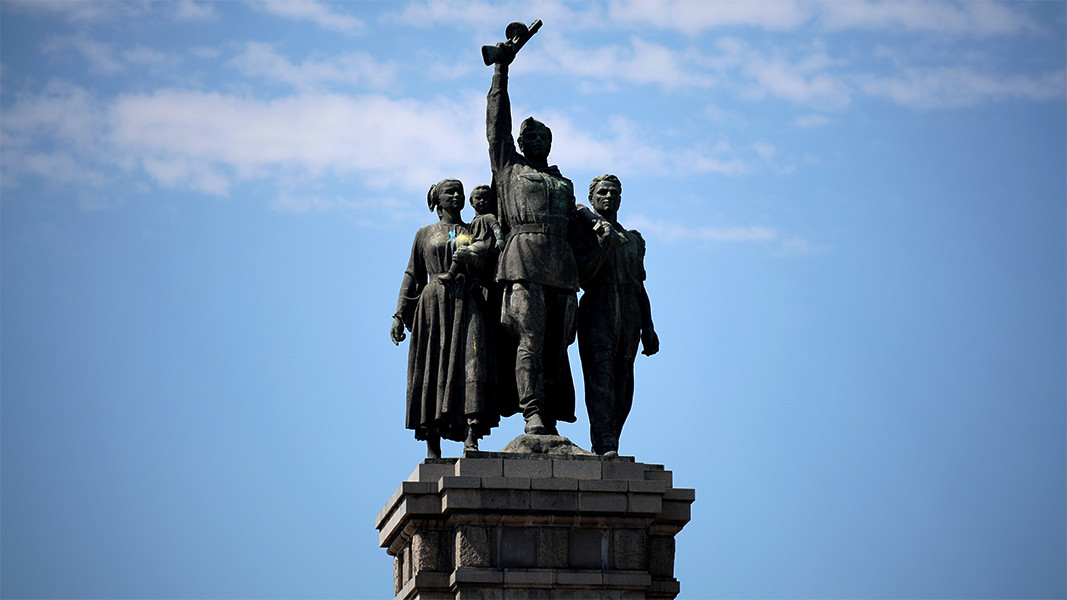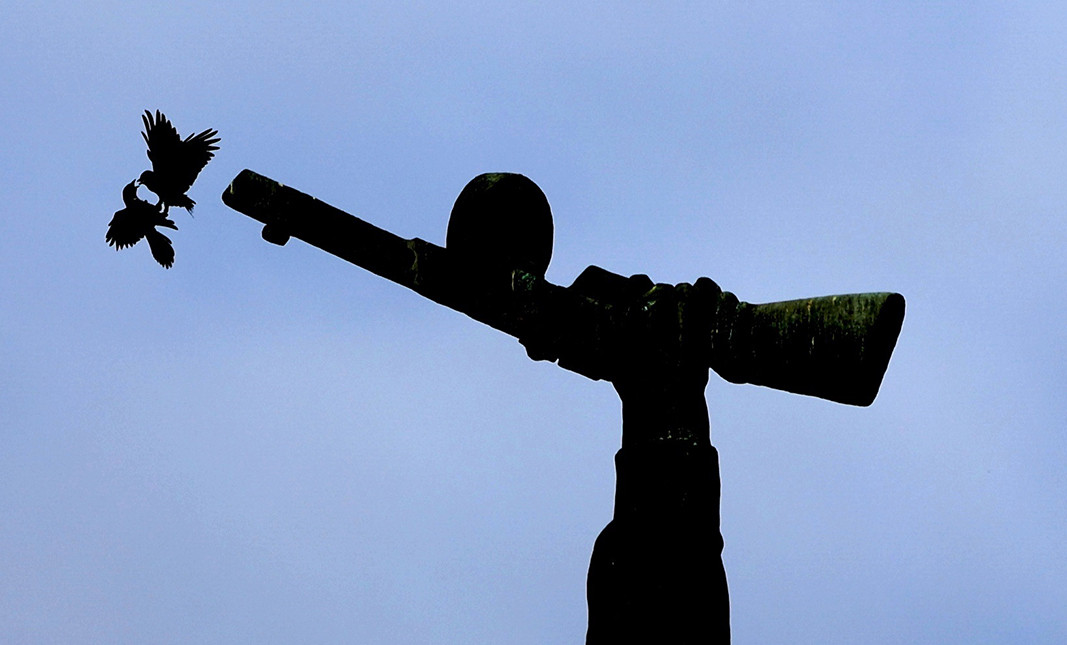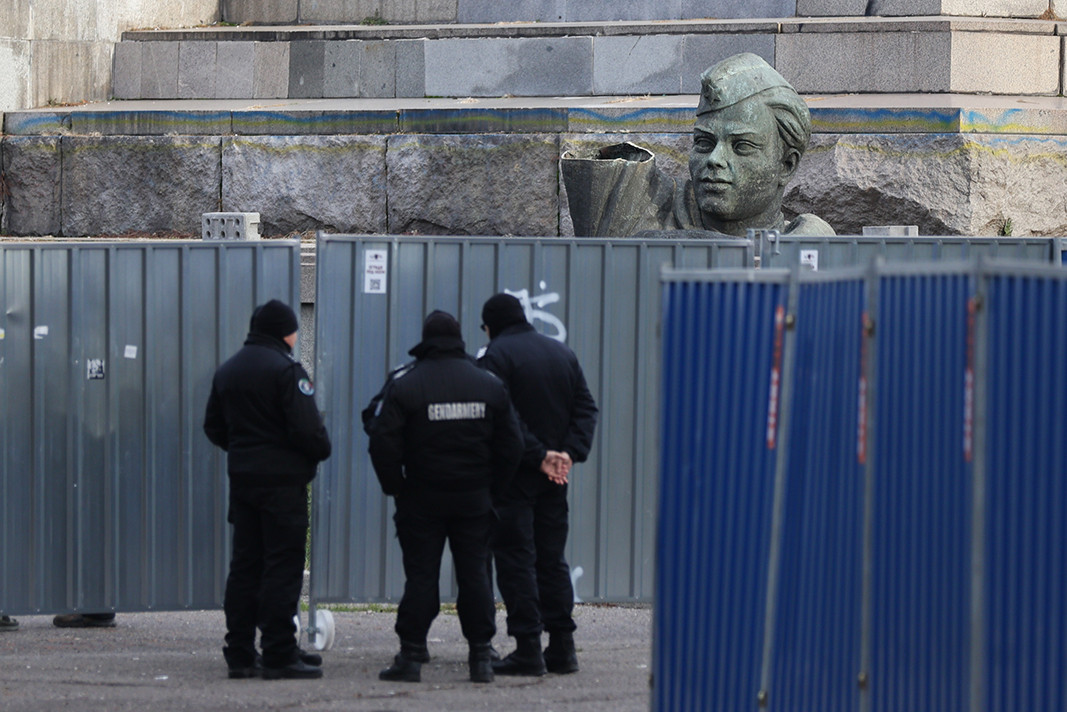There is a chilling quote that is attributed to Jean Cocteau: History is made up of truths which eventually turn into lies, while mythology is made up of lies that eventually become truths. Words that fit the tensions surrounding the dismantling of the Monument to the Red (Soviet) Army in Sofia like a glove.
It is a historical truth that on 5 September 1944, the USSR declared war on Bulgaria and occupied it. The government ordered the Bulgarian army not to resist. The country found itself in a situation that is unique - at the time Bulgaria was at war with all Great Powers during World War II, and with the Third Reich. On Bulgarian territory the Red army did not lose a single life in military action. It is also a historical truth that at the time when the Third Bulgarian Kingdom was forced to become an ally to Nazi Germany on 1 March, 1941, Hitler had another ally too – Joseph Stalin’s USSR. It is also true that after 22 June, 1941, despite pressure from Berlin, Bulgaria’s Tsar Boris III did not agree to declaring war on the USSR and did not send Bulgarian troops to the Eastern front.
It is a myth, i.e. a lie that the Red army liberated Bulgaria from fascism. There was an authoritarian regime in the country. But after the monarch died, even that remained in limbo. There has never existed fascist rule in the country. The Soviet army overthrew a legitimate coalition government with prime minister democrat Konstantin Muraviev. What the Soviet army did was to assist a coup d’état organized by the Bulgarian communists. The government of Kimon Georgiev was collaborationist and served the occupier. The USSR installed Stalinist rule in Bulgaria with terror which was to turn the country into a Soviet satellite in the years of the Cold War.

The Monument to the Soviet Army was erected as a symbol of the occupier-“liberator” in 1954 on the occasion of the 10th anniversary of the communist coup in the country. There would have been no problem with the fate of this monument today had the pre-1989 myths been rejected and forgotten – the inscription on it could have been replaced with the words “Bulgaria, never allow anyone to enslave or liberate you!” Something the people who built modern Bulgaria after the country’s liberation in 1878 knew only too well.
“Memorial monument” means a monument is erected to remind the coming generations of a specific historical event. This past is often encased in a durable myth. The controversy today is not just about what will happen to the monument, it is about the symbolic myths from the past which is still polarizing society. Russia’s war against Ukraine enflamed the controversies, because the perception of the past and the expected future rest on the evaluation of the past. 
In the period after 1990, Sofia failed to effectively reach any agreement with Moscow on the fate of the Soviet (not Russian) memorials in Bulgaria. In exchange for keeping them, the country could have asked for the return of the Bulgarian archives taken in 1944. The archives of the foreign and of the interior ministry are especially important and valuable. The documents in these archives are the best monument and guardian of the historical truth. Moscow is still afraid to publish these documents. It is no coincidence that Vladimir Putin’s neo-imperial regime has reverted to a Stalinist interpretation of history, especially in the period of World War II. Just as in the time of communism, the science of history has been relegated to a skivvy to ideology. The dismantled monuments ought to be restored and kept as hostages – they could serve as a bargaining chip for the return of Bulgaria’s archives.
Translated and posted by Milena Daynova
Photos: BTA, BGNES
Three-time world champion and Olympic weightlifter Carlos Nasar will be holding a special event with the Bulgarian community in London on 23 November. According to the organisers, it will be an open conversation in which Nasar will discuss his journey..
On 16 November, we celebrate Caritas Day, when we honour the Catholic Church’s charity organisation that brings hope to those in need through care and acts of mercy . It reminds us that financial gain is not what matters most. What truly matters is..
The first museum of investment gold is welcoming visitors in Plovdiv who want to learn more about the history of money and its connection to gold – from the birth of gold, its cosmic origin, and its journey to Earth, to how this precious metal has..
The Day of the Christian Family is an annual event that brings Bulgarians in Hamburg together. 2025 is no exception, with invitations having been..
Kosovo is heading for early elections after nine months of failed attempts to form a government Kosovo President Vjosa Osmani has dissolved..
Security cameras captured a bear in a residential neighborhood of the town of Karlovo a few days ago. The predator came down to the houses in the..

+359 2 9336 661
